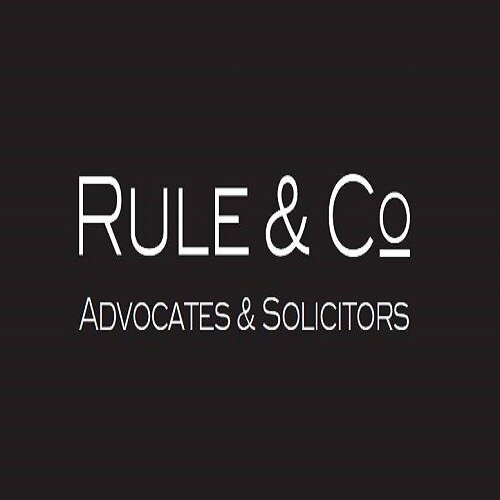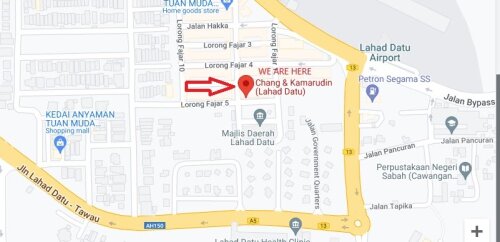
Best Creditor Lawyers in Malaysia
Share your needs with us, get contacted by law firms.
Free. Takes 2 min.
Or refine your search by selecting a city:
List of the best lawyers in Malaysia

About Creditor Law in Malaysia
Creditor law in Malaysia governs the rights and processes involved when creditors seek to collect debts owed to them. This area of law covers various aspects, including the recovery of debts, bankruptcy procedures, and the rights of creditors in different types of insolvency proceedings. The system aims to ensure fair treatment of both creditors and debtors while providing mechanisms for debt recovery. It includes provisions for amicable settlements, litigation, and enforcement methods like garnishment or liquidation of a debtor's assets.
Why You May Need a Lawyer
There are several situations where seeking legal advice in creditor matters may be necessary:
- Debt Collection: If you are a creditor attempting to collect a debt from a non-compliant debtor, a lawyer can guide you through legal remedies available to secure payment.
- Bankruptcy Proceedings: When a debtor declares bankruptcy, creditors need representation to protect their interests and to understand their rights regarding the debtor's estate.
- Dispute Resolution: Legal expertise is often required in cases involving disputes over the validity of debts or the terms of repayment.
- Enforcement of Judgments: After obtaining a court judgment, creditors may need assistance in enforcing that judgment for debt recovery.
- Negotiations: Lawyers can help in negotiations with debtors and their representatives to achieve amicable settlements.
Local Laws Overview
Several key legal frameworks and laws apply to creditor matters in Malaysia:
- The Insolvency Act 1967 sets the procedures and rights concerning bankruptcy and insolvency cases.
- The Companies Act 2016 outlines the obligations and remedies available to creditors of companies facing insolvency.
- The Debt Collection Act 1951 regulates debt collection practices, ensuring they are conducted lawfully.
- The Contracts Act 1950 governs the formation and enforcement of contracts, crucial in understanding creditor-debtor agreements.
Frequently Asked Questions
What are the primary steps in debt recovery?
Debt recovery typically includes identifying the debt, sending notices, and pursuing legal action if necessary, culminating in enforcement mechanisms.
What rights do I have as a creditor in a bankruptcy case?
Creditors have the right to be notified of proceedings, participate in hearings, and submit claims against the debtor's estate for outstanding debts.
How long does it take to recover a debt through legal proceedings?
The duration varies but can take several months to years, depending on factors like the complexity of the case and the debtor's response.
Can interest be charged on overdue debts?
Yes, if stipulated in the contract or agreement, interest can be charged on overdue debts until payment is made.
Are there any restrictions on debt collection practices?
Yes, practices should comply with the Debt Collection Act, prohibiting harassment or unlawful tactics to collect debts.
What is an enforcement of judgment?
It refers to the legal processes employed to ensure that a judgment creditor receives the payment ordered by the court.
What documentation is needed for debt recovery?
Key documents include contracts, invoices, correspondence, and any proof of the debtor's acknowledgment of the debt.
Is out-of-court settlement possible in debt disputes?
Yes, creditors and debtors can reach amicable settlements outside of court to save time and resources.
What role does a lawyer play in creditor litigation?
A lawyer provides representation, guides through legal processes, advises on strategy, and helps in drafting necessary legal documentation.
Can a foreign creditor recover debts in Malaysia?
Yes, foreign creditors can pursue debt recovery, but they must adhere to Malaysian legal procedures and may require local legal representation.
Additional Resources
Here are some resources and organizations that can be beneficial:
- Malaysian Insolvency Department: Offers guidance and information on bankruptcy and insolvency procedures.
- Central Bank of Malaysia (Bank Negara Malaysia): Provides insights on financial regulations affecting creditors.
- Legal Aid Centre: Offers assistance and resources for individuals requiring legal aid in creditor matters.
- Local Bar Associations: Can help in finding qualified lawyers specializing in creditor law.
Next Steps
If you require legal assistance in creditor matters, consider the following steps:
- Consult with a qualified lawyer experienced in creditor law to understand your rights and options.
- Gather all relevant documentation concerning the debt or dispute for review by your legal counsel.
- Discuss potential strategies and actions with your lawyer to determine the best approach for your situation.
- Ensure that any legal proceedings or negotiations are conducted in compliance with Malaysian laws and regulations.
By taking these steps, you can effectively navigate creditor law challenges in Malaysia.
Lawzana helps you find the best lawyers and law firms in Malaysia through a curated and pre-screened list of qualified legal professionals. Our platform offers rankings and detailed profiles of attorneys and law firms, allowing you to compare based on practice areas, including Creditor, experience, and client feedback.
Each profile includes a description of the firm's areas of practice, client reviews, team members and partners, year of establishment, spoken languages, office locations, contact information, social media presence, and any published articles or resources. Most firms on our platform speak English and are experienced in both local and international legal matters.
Get a quote from top-rated law firms in Malaysia — quickly, securely, and without unnecessary hassle.
Disclaimer:
The information provided on this page is for general informational purposes only and does not constitute legal advice. While we strive to ensure the accuracy and relevance of the content, legal information may change over time, and interpretations of the law can vary. You should always consult with a qualified legal professional for advice specific to your situation.
We disclaim all liability for actions taken or not taken based on the content of this page. If you believe any information is incorrect or outdated, please contact us, and we will review and update it where appropriate.
Browse creditor law firms by city in Malaysia
Refine your search by selecting a city.














